Oil Minister Says Russia No Threat To Iran’s Oil Sales
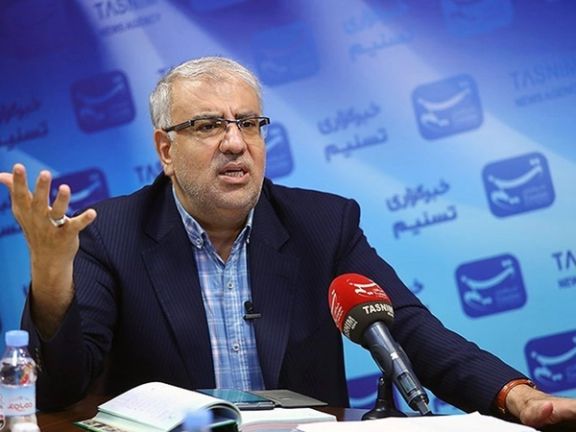
Iran’s oil minister Javad Owji told reporters Wednesday it would take Russia time to find new markets to replace possible losses in exports to Europe or north America.

Iran’s oil minister Javad Owji told reporters Wednesday it would take Russia time to find new markets to replace possible losses in exports to Europe or north America.
Before the Ukraine invasion, Russia sold about half of its 7.85 million barrels a day (bpd) of exported crude and refined oil to Europe, but discussions with the European Union (EU) of a ban on Russian oil – following bans introduced by Australia, Canada, the United Kingdom, and the United States – had led to speculation that Russia would look for new markets in Asia, where China and India continue to buy Russian crude offered at discount.
According to a recent report in the Wall Street Journal, Iran’s oil exports, going mainly to China, rose to 870,000 bpd in the first three months of 2020, up around 30 percent from an average 668,000 bpd in full-year 2021.
This prompted questions to Owji from reporters as to whether Russia might displace Iran, especially by undercutting on price – to which the minister offered reassurance.
While the Group of Seven (G7) nations, including Japan, have agreed to phase out Russian oil imports, the EU has been unable to follow suit, mainly due to opposition from member states dependent on Russian supplies, such as Hungary. Eurostat figures show Russian earnings from oil exports to Europe at a higher level in 2022 than in 2021.
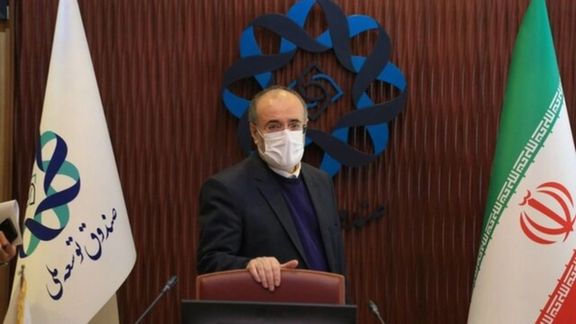
As Iran’s economic woes continue, the manager of its sovereign wealth fund has criticized successive governments for bad planning and treating the fund as an ATM.
In a gathering of senior officials on Tuesday, Mehdi Ghazanfari, a graduate of Australia’s University of New South Wales (Sydney) lashed out at ministers and civil servants for drafting unbalanced budgets and then running to Iran’s National Development Fund (NDF) for money.
Ghazanfari, the fund’s chairman, complained that at the end of each year, the presidential administration and parliament spend at least three months drawing up and debating a new budget, “but in the end whatever they plan includes a budget deficit and they turn to NDF.”
Since its establishment in 2000 as a currency reserve to supplement the Oil Stabilization Fund, successive governments have dipped into the NDF for current spending, including the withdrawal of the equivalent of 2 billion euros in 2019 to boost defense spending. The administration of President Mahmoud Ahmadinejad (2005-13) borrowed heavily from the fund, which contained $24 billion when he was elected. The populist president withdrew $2.7 billion to pay New Year cash handouts to all Iranians in 2013.
While the fund was originally intended to net 20 percent of Iranian oil income – a target subsequently increased to 40 percent – United States ‘maximum pressure’ sanctions introduced in 2018 reduced Iran’s oil exports from over 2.5 million barrels a day (bpd) in 2017 to around 650,000 bpd in 2021. In two years of deep recession 2019-2020, the government raided the fund to finance spending, introducing a veil of secrecy around reserves.
‘Go To Mr Kazemi if you need money’
Claiming there had been a recent request from an unnamed minister for close to $1 billion, Ghazanfari asked why the government needed extra cash so early in the fiscal year, which began March 21.“If you need money for operational or developmental budgets, go to Mr [Masoud Mir] Kazemi [head of the Planning and Budget Organization],” Ghazanfari quipped. He also argued the government could borrow from banks.
Ghazanfari called for a consistent approach based on realistic targets. “When you say NDF’s share from oil revenues is 40 percent, then allow it to remain 40 percent and don’t mess with it in the middle of the year,” he said. “If there are sanctions and you cannot deposit money in the fund, then don’t deposit [in the first place].”
President Ebrahim Raisi’s government has claimed credit for higher oil exports despite US sanctions and has insisted the proceeds have reached Iran, despite US banking sanctions threatening punitive action against any third party dealing with Iran’s financial sector.
The Wall Street Journal recently estimated that Iran's oil exports, going mainly to China, had risen to 870,000 barrels a day in the first three months of 2022, up around 30 percent from an average 668,000 bpd in full-year 2021. But the falling rial – losing 20 percent of its value in the past two months – suggests there has been no great influx of foreign currency.
A money request from NDF means the government is short of cash, which puts the claims about higher oil revenues in doubt. This can also be surmised from the falling exchange rate for Iran’s currency, rial. In the past two months, the rial has fallen from 250,000 to 300,000 against the US dollar, a 20 percent decline.
It was perhaps in this context that Ghazanfari mentioned a minister asking for close to a billion dollars from NDF.
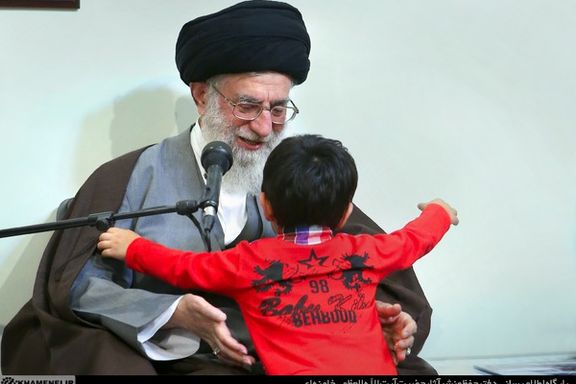
Iran’s Supreme Leader Ali Khamenei says efforts to increase the country's population are among the most urgent duties and essential policies of the Islamic Republic.
In a message to the National Population Taskforce on Wednesday, Khamenei appreciated efforts of officials active in the field of population growth as well as the government and lawmakers in parliament.
He warned about “dangers of an aging population” and called for measures to boost birth rates.
“This is a vital policy for the long-term future of our dear country” Khamenei said, claiming that scientific research has proven all the possible harms of this policy can be avoided. He also urged more legal and cultural efforts aimed at increasing the population.
Khamenei’s remarks came as tens of millions of Iranians have sunk into poverty in the last decade because of an inefficient economy, low growth and foreign sanctions. The government raised basic food prices earlier this month, adding to existing inflation.
Parliament has passed legislation to outlaw tubectomy, vasectomy, and the free dispensation of contraceptives other than where pregnancy would threaten a woman's health. The health ministry has advised women over 35 to wait only a year before becoming pregnant again and under-35s to wait six months.
Medical experts have warned that the new legislation would increase sexually transmitted diseases by restricting access to condoms.
The law obliges the government to offer incentives, including a 7.5-fold increase in child-benefit payments to government employees, interest-free loans, and other benefits. While the new law does not include a ban on prenatal screening, doctors have been advised not to encourage it.
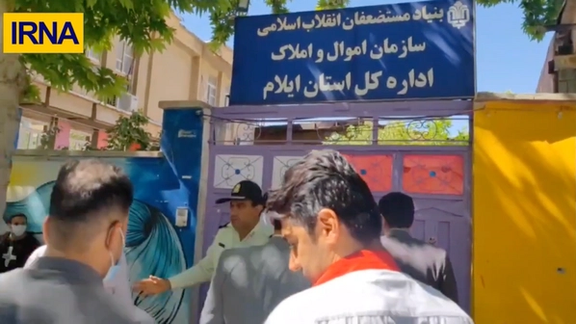
A former employee of Iran’s charitable Mostazafan Foundation killed three of his former coworkers on Wednesday before killing himself in a hostage taking in the western Iranian city of Ilam.
According to local police, seven other people were injured in the incident, some of whom are in critical conditions. One of them succumbed to his injuries at the hospital.
Fars news agency said that following a verbal argument with the employees of the Property and Real Estate Department of the Mostazafan Foundation of Islamic Revolution, the former employee took a gun from his car, and held several of his colleagues at gunpoint before he started a shooting spree on the premises.
According to unconfirmed reports, the hostage taker threw a grenade inside one of the rooms of the office.
No details about the identity or motive of the hostage taker were released, and local police authorities say the incident is under investigation.
Bonyad-e Mostazafan in the Islamic Republic’s second-largest commercial enterprise that is behind the state-owned National Iranian Oil Company. It is reportedly the biggest holding company in the Middle East.
The bonyad is associated with the Islamic Revolutionary Guard Corps where some of its head officials have come from.
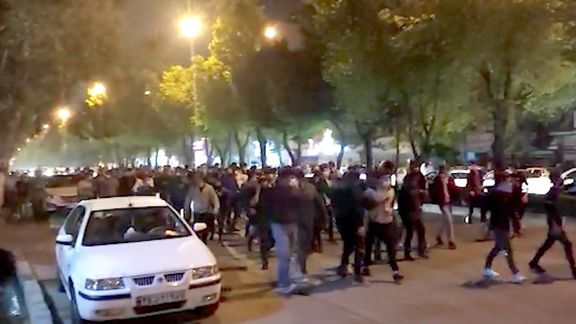
Five hundred Iranian political and civil activists and Amnesty International in separate statements Tuesday warned about the government’s heavy-handed suppression of protesters.
The activists in their statement urged the government of President Ebrahim Raisi to adopt a fundamental solution to the problems that the country is currently grappling with, particularly the issue of soaring prices and very high inflation, and to reform faulty structures and change policies while showing tolerance towards protesters.
Activists also warned that suppression of protests and arresting protesters would only make the situation worse and add fuel to the fire.
Protests that began in the southwestern province of Khuzestan over a week ago triggered by a sudden jump in food prices have spread to other provinces and have continued, mainly in smaller towns. The protests have quickly taken an anti-government tone and protesters often chant slogans against authorities, including the supreme leader, the president, and the ruling clerics. In some instances, protesters have attacked local headquarters of the Basij militia of the Revolutionary Guards (IRGC) whose members are often deployed to suppress protesters.
In larger cities such as the capital Tehran, Mashhad, Zanjan and Shiraz security forces have displayed a heavy presence on the streets, creating an atmosphere of fear and apprehension.
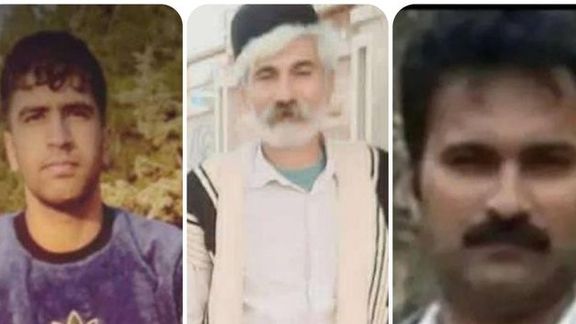
So far at least six protesters have been shot, in the head or chest, by security forces in western provinces of Khuzestan as well as Chahar Mahal and Bakhtiari and around one hundred have been arrested in various cities.
The global human rights watchdog, Amnesty International, also said in a statement Tuesday that it is the human right of people in Iran to "organize and take part in peaceful protests free from intimidation, violence and threats of arbitrary arrest, torture and unjust prosecution”. Amnesty urged Iran’s Supreme Leader Ali Khamenei to “rein in security forces to prevent further bloodshed.”
Amnesty also said access to the internet is essential to protect human rights, especially during protests. “Iran’s authorities must stop the pattern of internet shutdowns used to silence people in Iran and cover their human rights violations, including by security forces.”
The global rights watchdog also urged the international community, including the UN Human Rights Council states, to pressure the Iranian authorities to stop the recurrent pattern of using lethal force and pursue accountability through an independent UN mechanism.
In exclusive comments to Iran International on Monday, a US spokesman also condemned the use of violence by security forces against protesters and supported their right to peaceful assembly. “We are witnessing brave Iranian protestors demand that their government address their concerns amid rising commodity prices and water and electricity shortages. We have also seen deeply disturbing reports of security forces firing on protesters. Again, we condemn the use of violence against peaceful protestors,” he said.
The spokesman also condemned the disruption of internet services in many cities and towns by the government who wants to prevent news reaching the world about the protests and the violence used against unarmed citizens.
Monday evening a young man, Jamshid Mokhtari, was shot dead by security forces in Jouneghan, a small town in Chahar Mahal and Bakhtiari province. Social media reports Tuesday said the Internet had completely shut down in Jouneghan and security forces were shooting at protesters.
More Protests were reported in Golpayegan in the central province of Esfahan Tuesday where people took to the streets for the first time.
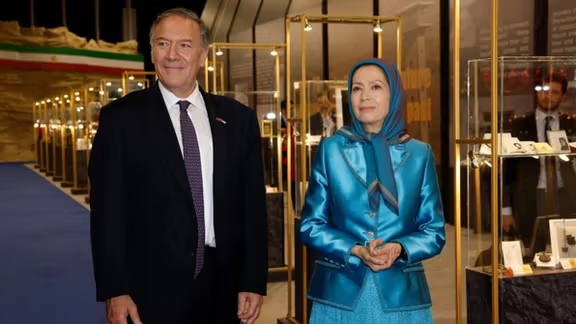
Mike Pompeo, United States Secretary of State under President Donald Trump, has visited the camp in Albania of the Iranian Mujahedin-e Khalq (MEK).
“In the end the Iranian people will have a secular, democratic, non-nuclear republic, I pray that this day will come soon,” Pompeo said during his controversial visit Monday. “I am committed to this cause; I know you all are too.” Pompeo met with the MEK leader Maryam Rajavi, describing her as “president-elect” of Iran.
Some Iranian dissidents have criticized Pompeo’s visit to the MEK center in Albania, as they regard the organization as non-democratic.
Pompeo, secretary of state when the US in 2018 left the 2015 Iran nuclear deal and imposed ‘maximum pressure’ sanctions, Monday called Iranian president Ebrahim Raisi a “butcher” who had “orchestrated” prison executions in 1988. Pompeo claimed 30,000 prisoners had been executed, the majority of whom “were the MEK.”
The Islamic Republic holds the MEK responsible for bombings in Iran in 1980s and for its alliance with Saddam Hussein until his overthrow in 2003. The United States relocated the opposition group from Iraq to Albania in 2013 as pro-Tehran Shiite groups were attacking the MEK and Kurds were demanding to hold the organization accountable for siding with Saddam.
Pompeo said that current “unrest in several Iranian cities, triggered by a sudden jump in prices,” showed Raisi had “failed” as president. “His mission is clear,” Pompeo said. “Inflict pain. Frighten, continue to loot and plunder.”